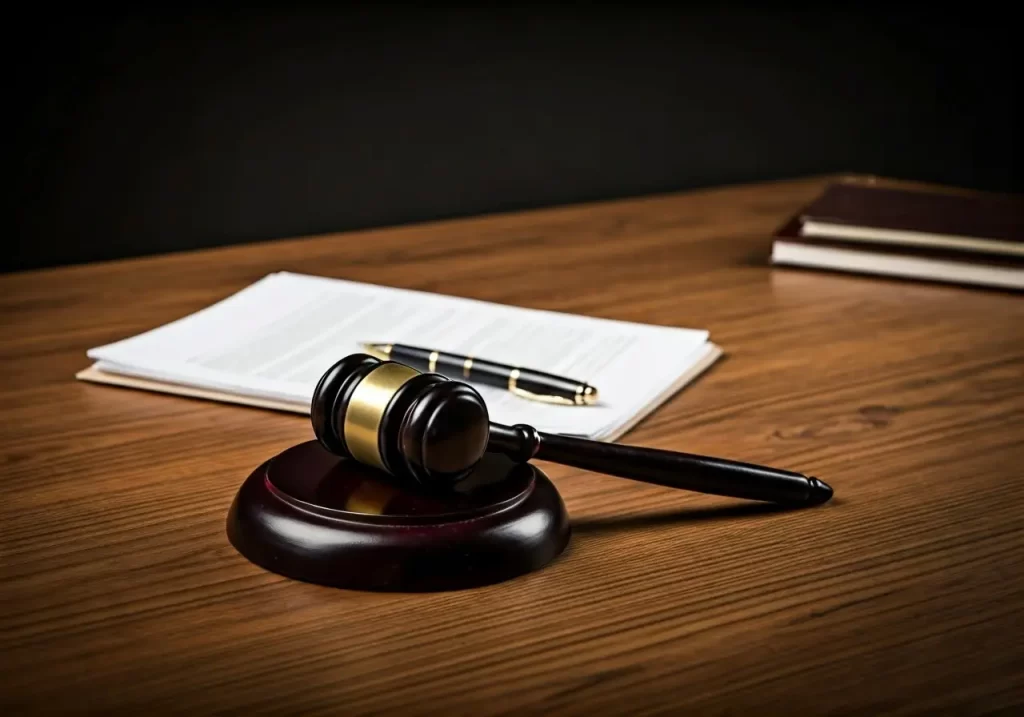If you’ve ever wondered what a criminal defense lawyer does, you’re in the right place. In this blog, we’ll break down the role of a criminal defense lawyer and how they help individuals navigate the often daunting legal system. With a friendly approach, we’ll explore their responsibilities, how they prepare for cases, and what options they provide for their clients.
Understanding the Role of a Criminal Defense Lawyer
A criminal defense lawyer specializes in defending individuals and organizations charged with criminal activity. They’re responsible for ensuring that their client receives a fair trial and defending their rights at each stage of a criminal case.
Their expertise lies not only in understanding the intricacies of the law but also in being strategic advocates for their clients’ interests. For example, if someone is accused of a DUI, a lawyer with a strong grasp of New Jersey DUI laws can be instrumental.
Criminal defense lawyers offer their services in various ways, from pre-trial negotiations to courtroom representation, ensuring that their clients’ rights are protected throughout legal proceedings.
They also engage in investigative work, collaborating with private detectives and forensic experts to build a strong defense. Understanding their pivotal role in criminal justice helps one appreciate the impactful websites they’ve developed, showcasing their expertise and past successes.
Advising Clients on Legal Options and Outcomes
One of the primary tasks of a criminal defense lawyer is to inform clients about their legal options and potential outcomes. This involves discussing possible defenses, plea bargains, and the repercussions of various legal paths.
Educating clients is fundamental; it empowers them to make informed decisions. This might include explaining the potential consequences of charges or dissecting complex laws, such as those concerning drunk and drugged driving.
Navigating the legal system can be overwhelming. Lawyers help demystify this process by breaking down each step, offering reassurance and clarity.
Building a Strong Defense Strategy
To defend their clients effectively, criminal defense lawyers gather evidence, interview witnesses, and work with experts to create a robust defense strategy. This preparation involves meticulous planning and investigation to present the strongest case possible in court.
Defense strategies are carefully tailored to each case. No two situations are alike, and neither are the tactics lawyers employ. The best criminal defense lawyers focus on the specific details that can tip a case in their clients’ favor.
They often work with experts specializing in fields like forensic analysis or psychology to uncover evidence that may be crucial to the case. Collaborating with such specialists can make all the difference in strengthening a defense.
Representing Clients in Court
In court, criminal defense lawyers advocate on behalf of their clients. They present evidence, question witnesses, and communicate with the judge and jury to convey their client’s side of the story, all while ensuring the legal process is fair.
This court representation is not merely about arguing facts; it’s about delivering them with compelling narratives and clear evidence. The ability to persuade a jury or negotiate with a judge is a testament to a lawyer’s skills, which are refined over years of practice.
Effective court representation requires an in-depth understanding of legal procedures and decorum, which is why opting for a proficient lawyer is vital. Observing past case outcomes and testimonials can inform you of a lawyer’s capability to manage complex cases.
Negotiating Plea Deals
Often, criminal defense lawyers negotiate plea deals with prosecutors. These deals can result in reduced charges or sentences and may be beneficial for the client, depending on the case details and goals.
Plea negotiations can be a strategic decision to secure a more favorable outcome, especially when the evidence against a client is particularly strong. A well-negotiated plea can significantly impact sentencing.
These negotiations require a blend of tact, experience, and legal knowledge, and are integral to a defense lawyer’s role in securing the best possible outcome for their client.
Post-Trial Assistance and Appeals
After a trial, a criminal defense lawyer may assist with filing appeals or seeking sentence reductions. They continue to support their clients by navigating the appellate process if necessary and ensuring all potential legal options are explored.
Post-trial proceedings are as crucial as the trial itself. For individuals facing overwhelming odds, getting an experienced lawyer for post-trial assistance can potentially overturn previous decisions or mitigate harsh penalties.
Navigating post-trial options efficiently is a hallmark of a dedicated attorney who remains committed to their client’s welfare even after the initial verdict.
Wrapping It Up
Criminal defense lawyers play a crucial role in ensuring the right to a fair trial is upheld. By guiding their clients, advocating on their behalf, and navigating the intricacies of the legal system, they are pivotal in defending the accused. Understanding their role helps demystify legal processes and highlights the importance of having a skilled lawyer by your side in challenging times.


